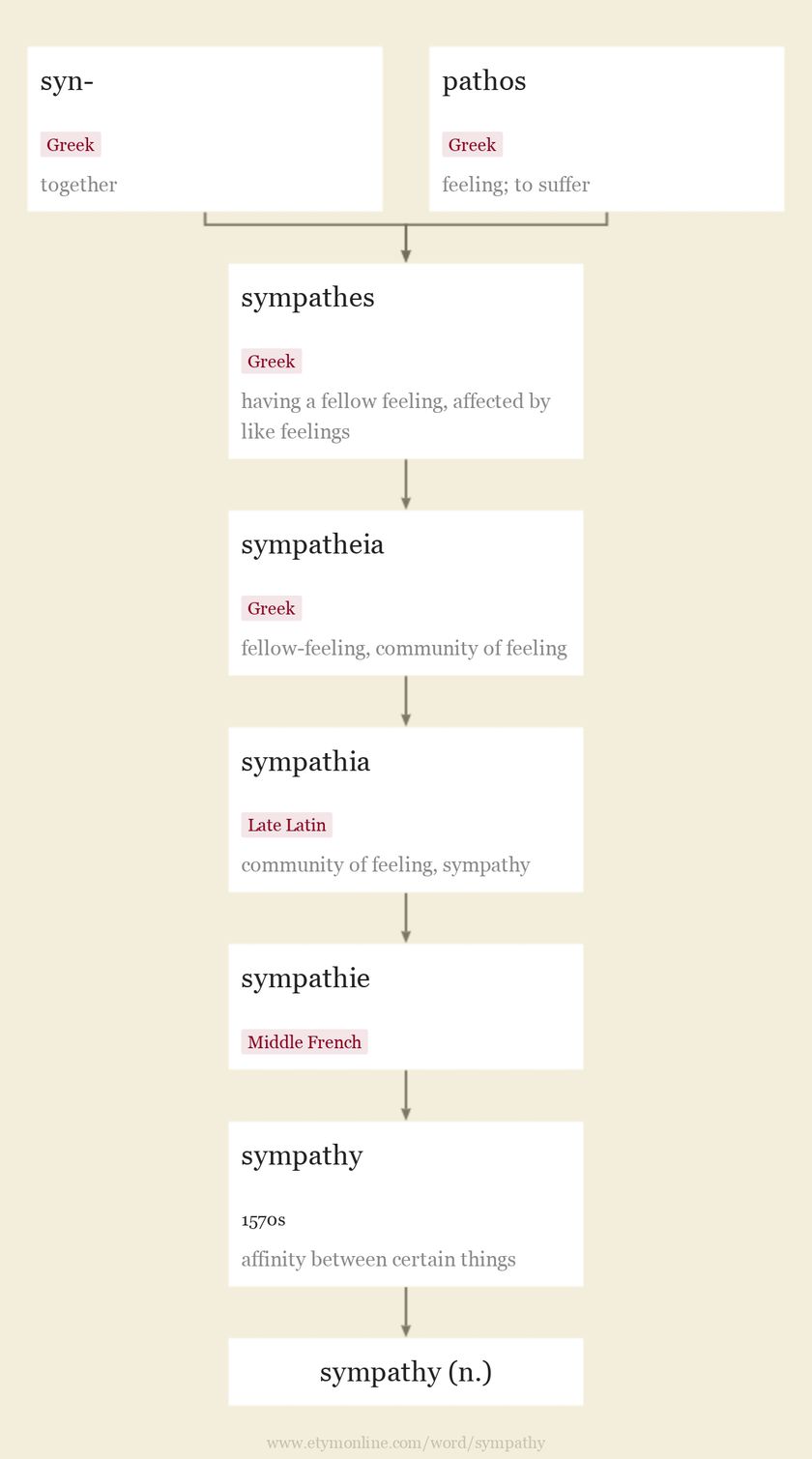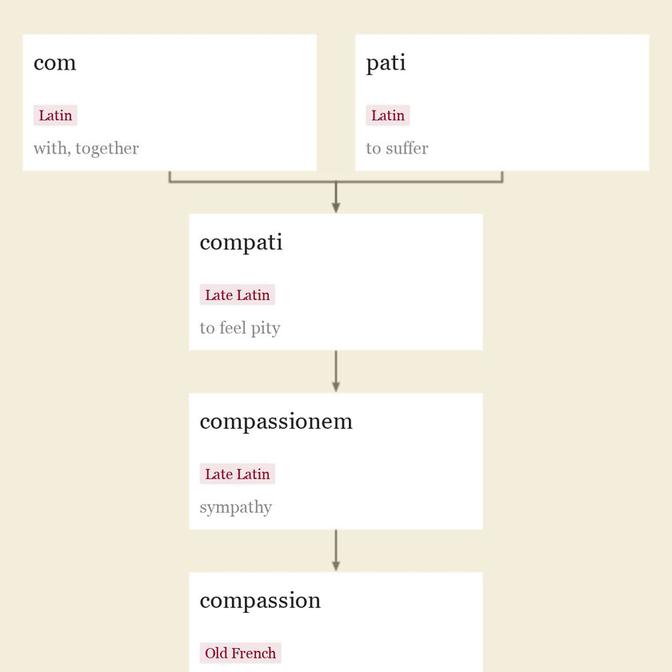sympathy (n.)
1580s (1570s in Latin form), "affinity between certain things" (body and soul, persons and their garments), from French sympathie (16c.) and directly from Late Latin sympathia "community of feeling, sympathy," from Greek sympatheia "fellow-feeling, community of feeling," from sympathēs "having a fellow feeling, affected by like feelings," from assimilated form of syn- "together" (see syn-) + pathos "feeling," which is related to paskhein, pathein "suffer" (from PIE root *kwent(h)- "to suffer").
In Middle English in reference to an occult-like, almost magical influencing of one mind or body by another, especially in physiology and pathology: It was used in reference to medicines that heal wounds when applied to a cloth stained with blood from the wound.
The meaning "conformity of feelings, agreement of affections or inclinations" is from 1590s; weakened sense of "favorable attitude of mind toward" is by 1823. The meaning "quality of commiserating with the sufferings of another" is from c. 1600; that of "a feeling identical with or resembling that which another feels" is from 1660s.
An Old English loan-translation of sympathia was efensargung (even, that is "likewise," sorrying) and compare German Mitgefühl. Sympathy card is attested by 1916, earlier deepest sympathy card is by 1914.

Trends of sympathy
updated on November 07, 2024
Dictionary entries near sympathy
sympathectomy
sympathetic
sympathise
sympathize
sympathizer
sympathy
sympatric
symphonic
symphonist
symphonize
symphony

